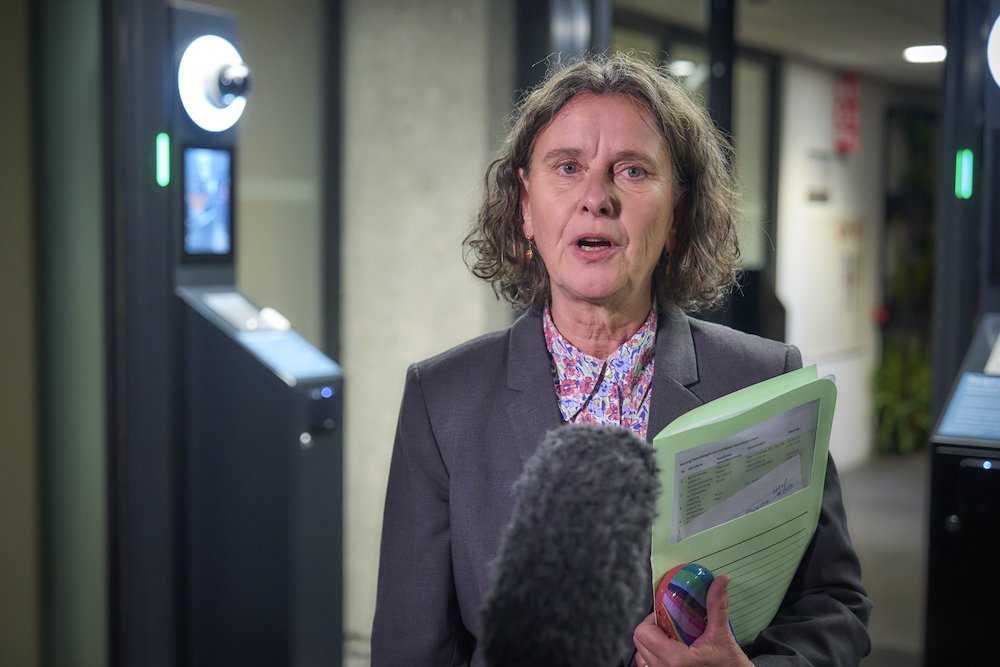Far-right ministers pledge to “behave” in new Dutch cabinet

Two ministers for the far-right PVV in the next Dutch cabinet have said they will behave differently in government and have pledged to uphold the coalition agreement.
Senior members of other parties in the new coalition have said they are concerned about past comments by Marjolein Faber and Reinette Klever and have openly doubted that they and others are capable of doing their new jobs.
Faber is set to be asylum and refugee minister in the four-party coalition. She was rebuked by outgoing prime minister Mark Rutte in a Senate debate about immigration in 2020 for using the term “omvolking” or population replacement, which Rutte pointed out is derived from the Nazi term Umvolkung.
Faber has also disputed the link between industrial emissions and climate change and refused to retract a false claim about the ethnic origin of a knife attacker in Groningen.
She told reporters before a meeting with coalition negotiator Richard van Zwol and next prime minister Dick Schoof on Tuesday that she had no wish to rake over the past, but that as minister she would behave “as a minister should”.
Instead, the hardliner said, she wanted to conserve her energy for the tasks ahead, “putting a tough asylum strategy in place”.
Grilling by MPs
All new ministers have been meeting Van Zwol and Schoof this week before parliamentary hearings where they will be grilled by MPs begin on Thursday. The new cabinet is set to pose with the king on the steps of Huis ten Bosch palace after being sworn in on July 2.
Last week the coalition partners held crisis talks after VVD leader Dilan Yesilgöz expressed her concerns about Faber. Yesilgöz says she has now accepted the PVV’s choice and it is up to her and party leader Geert Wilders “to show how they are in practice”.
“I have expressed my concerns. It is now up to Mr Wilders and Mrs Faber to act,” she said. Several prominent VVD members have also expressed their concerns about the PVV ministers and whether they are up to the job.
Faber has a difficult job ahead and her first task may well be to deal with the shortage of beds for refugees arriving in the Netherlands over the next few weeks.
That situation has been made worse by the new government’s decision not to force local authorities to take their fair share of new arrivals, meaning that they have little incentive to come up with accommodation for asylum seekers arriving in the already overcrowded Ter Apel reception centre.
“Do my best”
A second controversial PVV minister, Reinette Klever, has also said she will “do my very best” to stick to the agreements made in the coalition accord.
Before being nominated as minister for foreign trade and development aid she said the aid budget should be scrapped altogether. She is also a co-founder of far-right broadcaster Ongehoord Nederland (ON) which spreads conspiracy theories and has been fined for providing fake news.
A third PVV minister, Dirk Beljaarts, who is set to take over at Economic Affairs, has told reporters he has started the process of renouncing his Hungarian nationality. Beljaarts has a Hungarian mother and was Hungary’s honorary consul up to his appointment as minister.
Dual nationals
Beljaarts, a former hotelier, said his decision would enable him to “focus on the work ahead” and is unconnected to Wilders’ avowed opposition to dual nationality. Until recently Wilders said he wanted to remove voting rights from dual nationals and the new coalition’s plans still include measures to make it impossible.
Wilders’ decision to appoint new health minister Fleur Agema as deputy prime minister has also raised eyebrows. Former VVD MP Ton Elias told the Volkskrant that she is not up to the job.
“If the prime minister is abroad and there is a hijack or MH17 is shot down, then Agema will be the first replacement,” he said. “We are getting a deputy prime minister who can’t do it. She is totally unsuitable for the task and PVV backers agree.”
Thank you for donating to DutchNews.nl.
We could not provide the Dutch News service, and keep it free of charge, without the generous support of our readers. Your donations allow us to report on issues you tell us matter, and provide you with a summary of the most important Dutch news each day.
Make a donation